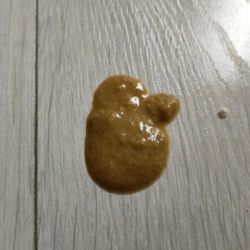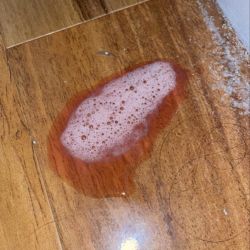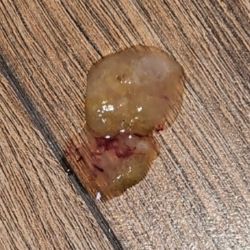
Vomiting in cats
What to do
Causes
When to worry
Prevention
Diagnosis
Home treatment
Recommended products
Vet treatment
Risk
Other causes of vomiting in cats

Vomiting in cats
Vomiting or sickness is a very common problem in cats. In most cases, they get better on their own or with supportive management.
When cats eat grass, bugs, or their own fur, they can be sick afterward. This is not normally a reason for concern, and they can be cared for at home. Sometimes they may have diarrhoea too. We call this gastroenteritis. It’s important that vomiting cats stay hydrated and maintain stable blood sugar levels.
What to do if your cat is vomiting
Do not feed them for a period of 2-4 hours
Allow access to water, little and often
Feed a teaspoon of a bland diet, such as plain boiled chicken or white fish, every 2 hours.
If you find that your cat can’t keep water or food down, please speak to a vet.
Why your cat is being sick
Common causes of vomiting in cats
Diet: eating something they shouldn’t have (plants, insects, small lizards), sudden change in food or eating too much, too quickly
Blockages in the stomach or in the gut: foreign bodies like parts of toys, hairballs, worms, or a mass (growth/tumour)
Food intolerances or allergies: when cats react to ingredients in their normal food causing vomiting, diarrhoea, and skin problems
Illnesses in other organs (liver, kidney or pancreas)
Toxins, poisons or reactions to medications: like human painkillers, certain antibiotics, wormers and vitamins, garden and house plants, antifreeze, or insecticides
Infections: virus or bacteria
When to be worried about your cat being sick
Cats are small and can get dehydrated or develop low blood sugars quickly. Seek the help of a vet in practice if:
Your cat has been sick several times in 24 hours
The vomiting doesn’t stop after a couple of days
Your cat is overly tired and not interested in playing
Your cat is in pain
Your cat is trying to be sick and not bringing anything up
You can see blood or black dots (like coffee granules) in the vomit
You think your cat may have eaten something toxic or a foreign body (such as parts of a toy).
Joii can help if:
You are worried about a kitten under the age of 12 months or an elderly cat
Your cat is not interested in food or water
You need to discuss feeding after vomiting
Your cat has had several episodes of occasional vomiting and diarrhoea
You think your cat might have eaten something toxic or poisonous
You need to talk about how to feed your cat after an episode of vomiting
You would like to discuss your cat’s diet
You would like to know more about worming your cat
You need advice on your cat’s behaviour
Tips to prevent your cat from vomiting
Provide them with good quality food at every meal.
Provide regular worming and vaccinations to protect them from infections.
Make sure to remove any toxic plants from your house and garden.
Keep human medications stored away.
Inspect toys regularly, especially if they have strings. And take hazardous toys away when your cat is unsupervised.
How to know if your cat is about to be sick
The symptoms of vomiting in cats include:
Being unsettled
Salivation
Licking their lips
Swallowing constantly
Tummy contractions
Bringing up food, liquid, foam, yellow bile or blood.





How to treat a vomiting cat at home
Home remedies for cats who are being sick
If your cat has been sick a couple of times but is otherwise bright and well, it’s important to:
Not let them eat for 2-3 hours after vomiting. Let their stomach rest and recover.
Allow access to fresh water
-
Encourage them to drink and stay hydrated:
Offer rehydration solutions especially made for animals
or the water from a tin of tuna in spring water
-
If they don’t vomit again, feed a teaspoon of bland, low-fat food every 2-3 hours for the first 24 hours. Then increase the amount and reduce the frequency for the next 2-3 days. We recommend:
Plain boiled chicken or white fish
Prescription commercial food for gastrointestinal problems, such as Hill's Prescription Diet i/d
Do a slow transition from bland or prescription food to normal food over at least 4-5 days.
Recommended products for vomiting in cats
How a vet will treat your vomiting cat in practice
Your vet will ask you lots of questions and examine your cat to figure out why they are being sick. They may suggest blood and urine tests, an X-ray or an ultrasound. Your vet will give medications to help with the vomiting, such as:
Anti-sickness medication
Stomach protectants
Anti-acid medication
Antibiotics and pain relief or other more specific medication, depending on the cause and if necessary
If your cat is not well and is getting dehydrated, they may need to stay in the practice and have fluids given on a drip.
Are some cats more at risk of vomiting?
Any cat of any age can develop vomiting.
Outdoor cats are at higher risk of vomiting as they are more likely to eat something they shouldn’t.
Younger cats and kittens are more likely to eat foreign bodies and toxins/poisons.
Cats that are not vaccinated or wormed are at higher risk of infections.
Burmese and Siamese cats under the age of one year are at higher risk of intussusception.
Other causes of vomiting in cats
Vomiting is often caused by irritation of the lining of the stomach and/or intestines. This is called gastritis, or gastroenteritis if diarrhoea is present too. In cats, vomiting is a symptom of many different problems, such as:
Eating something they shouldn’t have, such as plants, insects, small lizards
Sudden changes in food
-
Infections:
Viral: Feline Panleukopaenia Virus
Bacterial: Helicobacter, Salmonella
Parasites: roundworms
-
Parts of toys
Strings
Obstructions: caused by masses or intussusceptions
Food allergies or intolerances: reaction to an ingredient in their food. May cause vomiting, diarrhoea and itchy skin.
-
Eating something toxic or poisonous
-
Plants:
Rhubarb
Castor bean
Nightshade
-
Human medication:
Aspirin
Vitamins
-
Insecticides or anti-parasite treatments for other species
Pyrethrins/Permethrins (topical flea and tick treatments for dogs)
Organophosphates
Arsenic
Anti-freeze
-
-
Illnesses of other organs:
-
Hepatitis
Cholangitis
Hepatic lipidosis or fatty liver
-
Pancreas:
Pancreatitis: inflammation of the pancreas
-
Kidneys:
Kidney infections
-
Generalised infections: sepsis or peritonitis
Tumours





















